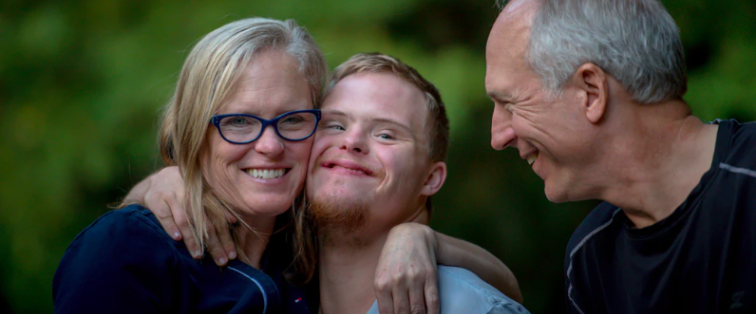Families and Providers Play an Active Role in Programs Funded by Autism Legislation

Editor’s Note: Each LEND fellow conducts a leadership project focused on either research or community partnership and join others in the community to present their leadership projects during an annual Community Symposia and Research Day. If you’re in Philadelphia, please join us May 20 from 11 a.m.-2:30 p.m. at the CHOP Abramson Research Center to learn about the important initiatives inspired by Dr. Miller’s LEND colleagues and mentors. Those interested in training as a LEND fellow can find more information here. To stay up-to-date on news from the Center for Autism Research, subscribe to CAR’s newsletter.
Editors Note: PolicyLab’s communications team is interested in learning more about our blog readers and your thoughts on our content. We invite you to take this 5-minute survey to help us ensure our posts continue to be helpful and relevant to our readers. The survey will be open until May 1, 2019.
The number of adults and children diagnosed with autism spectrum disorder (ASD) has been steadily increasing over the past few decades, due in part to greater awareness and a shift in the way the disorder is clinically defined. Estimates now place ASD prevalence somewhere between 1 in 59 and 1 in 40 in the United States. Throughout Children’s Hospital of Philadelphia’s (CHOP) Care Network, our specialists and primary care physicians provide care for more than 10,000 patients every year who are on the autism spectrum.
April is Autism Awareness Month, and 2019 brings the pending re-authorization of a primary piece of federal legislation affecting autism services and research—the Autism Collaboration, Accountability, Research, Education, and Support (Autism CARES) Act. Originally introduced in 2014 in response to the increasing numbers of individuals with ASD, the act set aside $260 million to support ongoing and coordinated research, awareness, and workforce development to train the health care providers and educators that are needed to help individuals with ASD reach their potential.
It also established the Interagency Autism Coordinating Council, uniting autism initiatives of the National Institutes of Health, Centers for Disease Control and Prevention, and Health Resources and Services Administration to develop a strategic plan for the funds, based on input from families, autistic individuals, researchers, clinicians and advocacy groups. These council meetings are open to the public and accessible online to encourage as much participation as possible. To learn more, visit: https://iacc.hhs.gov.
The original Autism CARES Act is set to expire on September 30 of this year, and a $1 billion re-authorization is currently under review in both the House and Senate to address the needs of people with autism, including additional support for adults on the spectrum.
The current strategic plan set by the Interagency Autism Coordinating Council includes an emphasis on improving screening and diagnosis, understanding the underlying causes and mechanisms involved in autism, developing new treatments and helping improve services along the lifespan. As the rates of autism remain high, communities need support at every age level, but across the nation services for adolescents and adults with autism are particularly limited compared to those for younger children. In addition to our research and training focused on children and youth, CHOP has multiple initiatives to improve the transition from adolescence to adulthood that are supported directly or indirectly by the Autism CARES Act, and we are continually looking for opportunities to increase our reach and ensure autistic adults reach their potential.
One of the ways we do that is through the Leadership Education in Neurodevelopmental Disorders (LEND) program, which plays a key role in training practitioners and advocates from 14 different health and advocacy disciplines. As one of 52 LEND sites across the country, CHOP is focused on all neurodevelopmental disorders, with a special emphasis on ASD. Trainees spend about a day a week in training over the course of the fellowship year and learn about interdisciplinary care, evidence-based assessment and intervention, research, community programs, program development, public policy and advocacy. LEND trainees contribute to research and quality improvement initiatives throughout the hospital, and keep CHOP connected to many community agencies critical to our patients and families.
I asked Laura Cubit, MA, a clinical psychology intern and LEND training fellow, to provide some insights into the program’s impact on her training as a clinician and patient advocate:

"My LEND training will definitely make me a better clinician and advocate for individuals with ASD and their families. Through course discussions with other LEND trainees, including health care providers from other disciplines, self-advocates, and family advocates, I have gained a much richer understanding of the needs facing children with ASD and their families and the role of societal and health care systems in meeting families’ needs.
I have also had the unique opportunity to participate in CHOP’s Family Advisory Council meetings, where I see firsthand how families of children with ASD and other special health care needs advocate for their children in a powerful way. Other LEND fellows in our group have learned about families’ perspectives by spending time with individual families in their homes or in the community. This allows our whole LEND group to gain a deeper understanding of the challenges facing families of children with ASD on a daily basis, and partner with families to advocate for systemic changes that will be most impactful in their lives.
LEND courses and other training experiences have also increased my understanding of and involvement with health policy and patient advocacy on behalf of families of patients with ASD. We have had the opportunity to attend workshops and courses on public policy and advocacy, and some of our trainees will have an opportunity to meet with members of Congress in their offices on Capitol Hill to pitch ideas or express support or opposition for pending legislation. All of my training experiences in LEND have underscored how important it is for families’ voices to be heard at all levels of policy decisions, from strategic planning at individual health care institutions up through federal legislation."
One of the most valuable aspects of the Autism CARES Act is its attention to voices of autistic individuals, their families and caregivers in developing programs designed to support their needs over the course of a lifetime. The experience of the LEND fellows is evidence that this model works well for both clinicians and families, and future legislation should continue to promote this active collaboration among families, researchers and care providers.
Judith Miller, PhD, is the clinical training director in the Center for Autism Research at CHOP and a clinical psychologist who studies diagnostic and clinical features of autism spectrum disorder across the lifespan.
